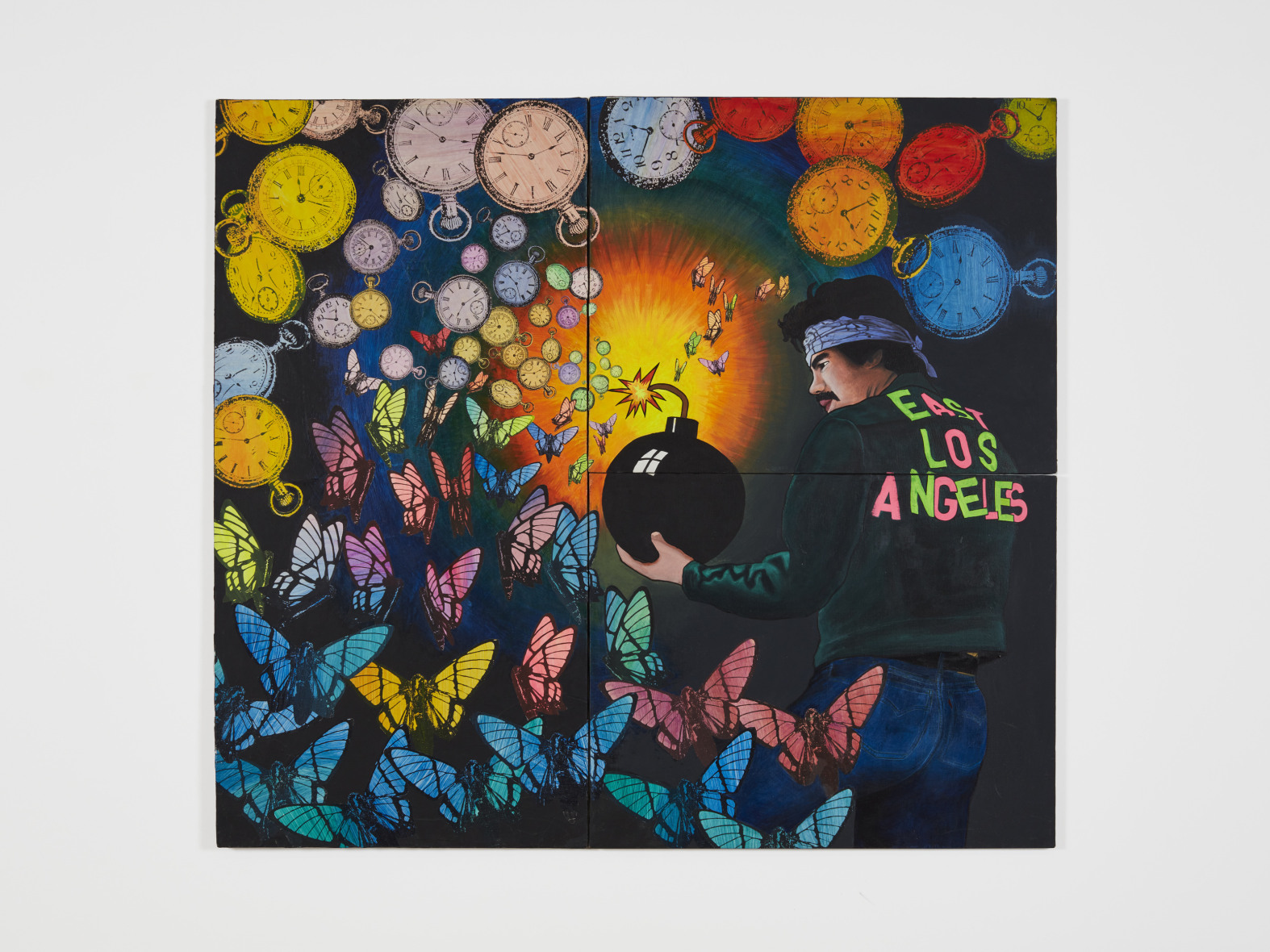
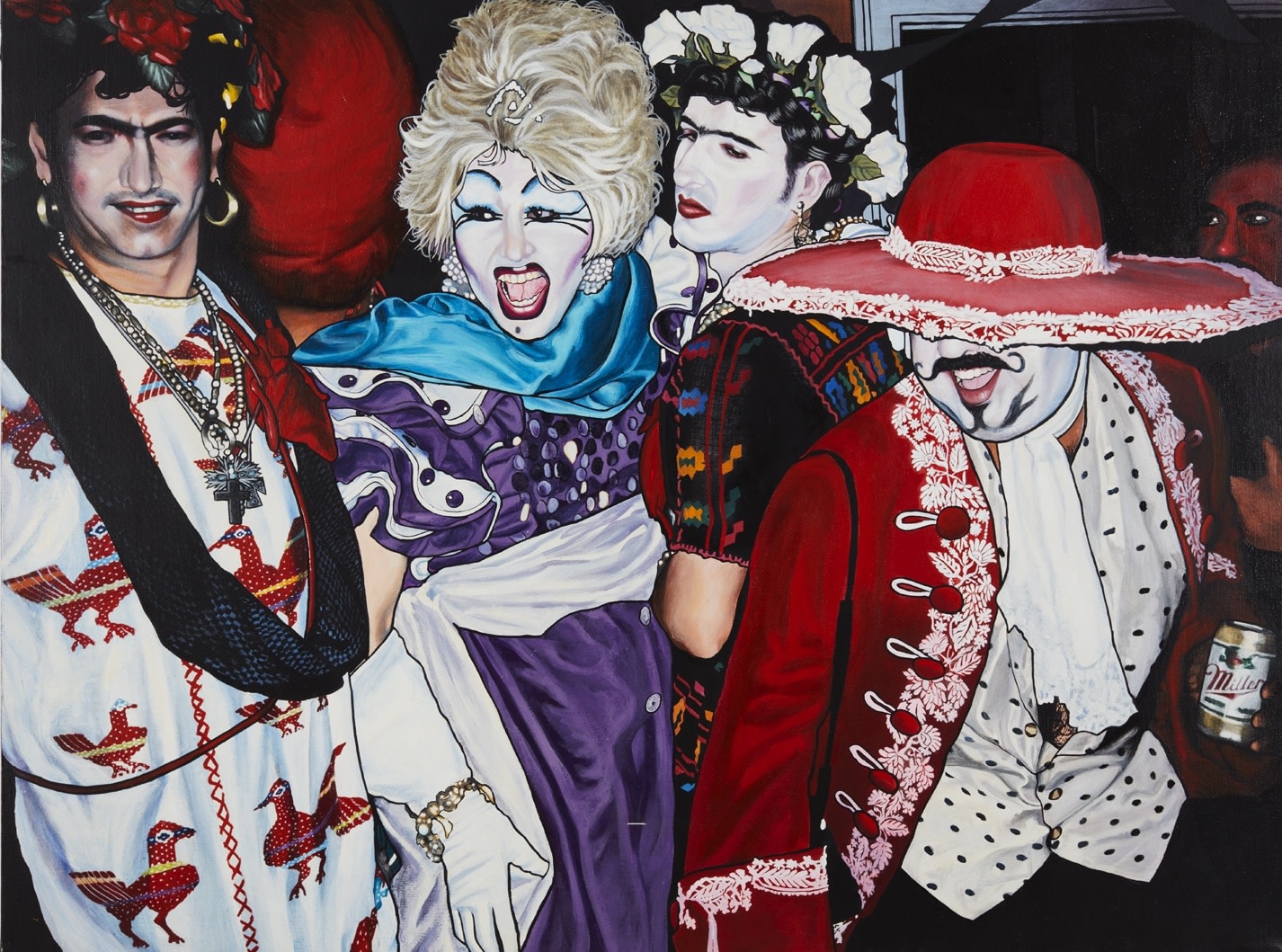
Joey Terrill joins diverse mediums of zine-making, performance and painting in a body of work that tenderly encompasses his intimate experiences of intersecting queer, Chicano and artistic communities. Drawing from the existing visual culture surrounding him, Terrill combines personal photographs, found pop cultural imagery and reproductions of artworks by queer predecessors to conjure utopian landscapes. While Terrill’s early work captures intimacies between friends and lovers at the start of the AIDS crisis in his characteristic flat style, his later paintings trace developments in photorealism and Conceptual art, reflecting the artist’s discursive relationship to illusionistic space.
Throughout his upbringing in Southern California, Terrill had exposure to prominent creative scenes such as Luis Valdez’s El Teatro Campesino, Asco’s guerrilla performances, Ray Johnson’s New York correspondence school and the radically progressive Catholicism of Sister Corita Kent at Immaculate Heart College. Like many artists who came of age in the wake of Pop art, Terrill found refuge within the fantasies of American image culture—his earliest artworks covering his bedroom walls, which he transformed with a mix of drawings, photographs and clippings of comic books, film starlets and music icons. The artist combines his concentrated background in art and local activism, bringing a popular graphic style to depictions of queer longing and Chicano culture.
Joey Terrill (b. 1955, Los Angeles) lives and works in Los Angeles. Recognized for his enduring AIDS activism, Terrill served as the Director of Global Advocacy and Partnerships for the AIDS Healthcare Foundation until recently. Terrill's work is currently on view in Copy Machine Manifestos: Artists Who Make Zines, Brooklyn Museum. He has exhibited solo exhibitions at Marc Selwyn Fine Art, Los Angeles (2024); Ortuzar Projects, New York (2023, 2021); Park View / Paul Soto, Los Angeles (2022); ONE Gallery, West Hollywood (2013); Ohio Union, Ohio State University, Columbus (2013); Norris Fine Art Gallery, Los Angeles (1993); Score Bar, Los Angeles (1984); and Windows on White Street, New York (1981). His work has been featured in the institutional surveys Copy Machine Manifestos: Artists Who Make Zines, Brooklyn Museum, Brooklyn, New York (2024); Made in L.A. 2023: Acts of Living, Hammer Museum, Los Angeles (2023); ESTAMOS BIEN–La Trienal 20/21, El Museo Del Barrio, New York (2020–2021); Touching History: Stonewall 50, Palm Springs Art Museum, Palm Springs (2019–2020); Through Positive Eyes, Fowler Museum, University of California, Los Angeles (2019); Axis Mundo: Queer Networks in Chicano L.A., Museum of Contemporary Art, Pacific Design Center and ONE Gallery, Los Angeles; and Asco: Elite of the Obscure, A Retrospective, 1972–1987, Los Angeles County Museum of Art (2011). His work has recently joined the permanent collections of the Museum of Modern Art, New York; Whitney Museum of American Art, New York; El Museo del Barrio, New York; Hammer Museum, Los Angeles; Museum of Contemporary Art, Los Angeles; Museum of Contemporary Art, San Diego; Williams College Museum of Art, Williamstown, Massachusetts; San Francisco Museum of Modern Art; Art Institute of Chicago; and the Smithsonian American Art Museum. Joey Terrill Still Here, the first monograph devoted to his AIDs-related works, is currently avaliable.
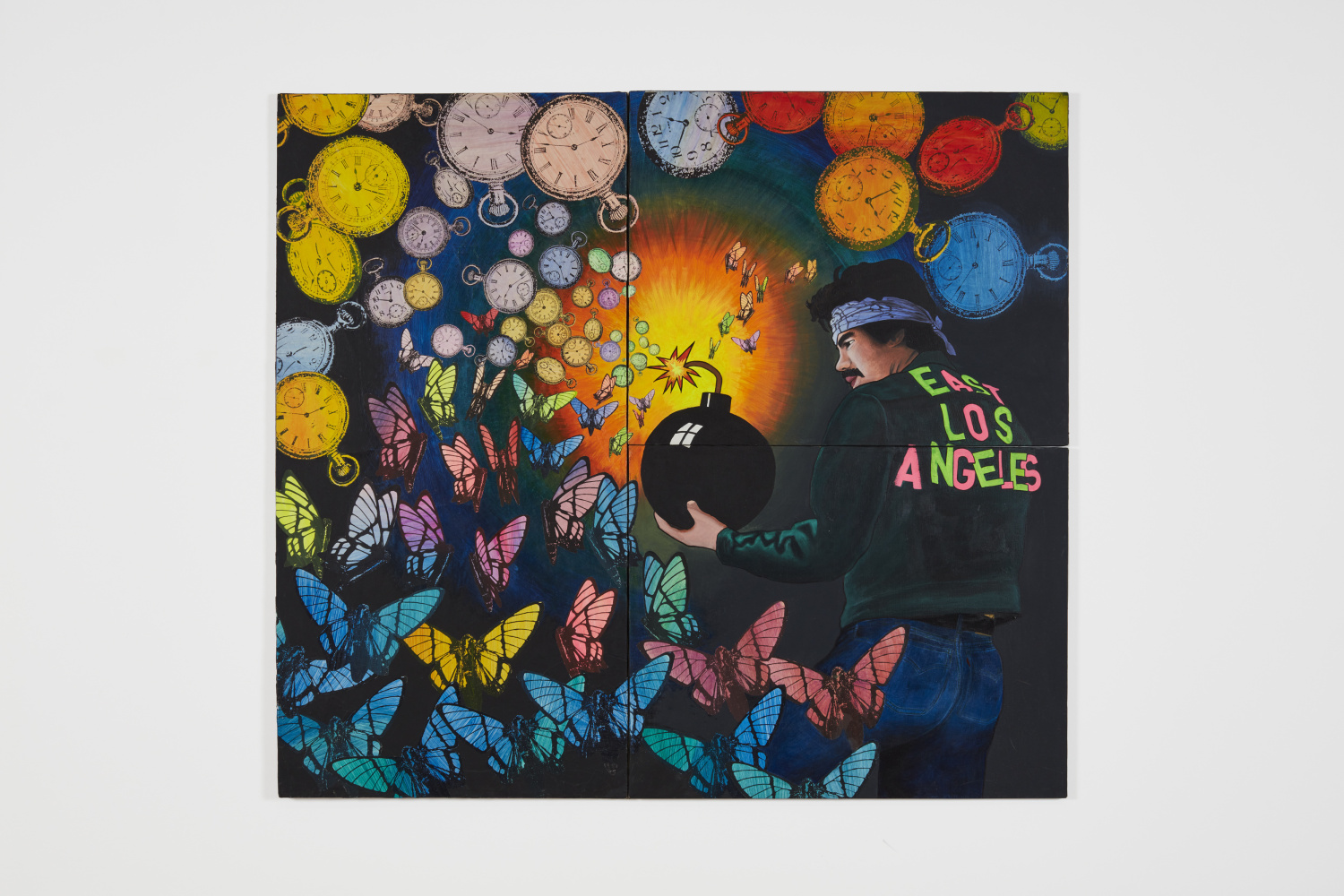
Joey Terrill, When I Was Young, 1995
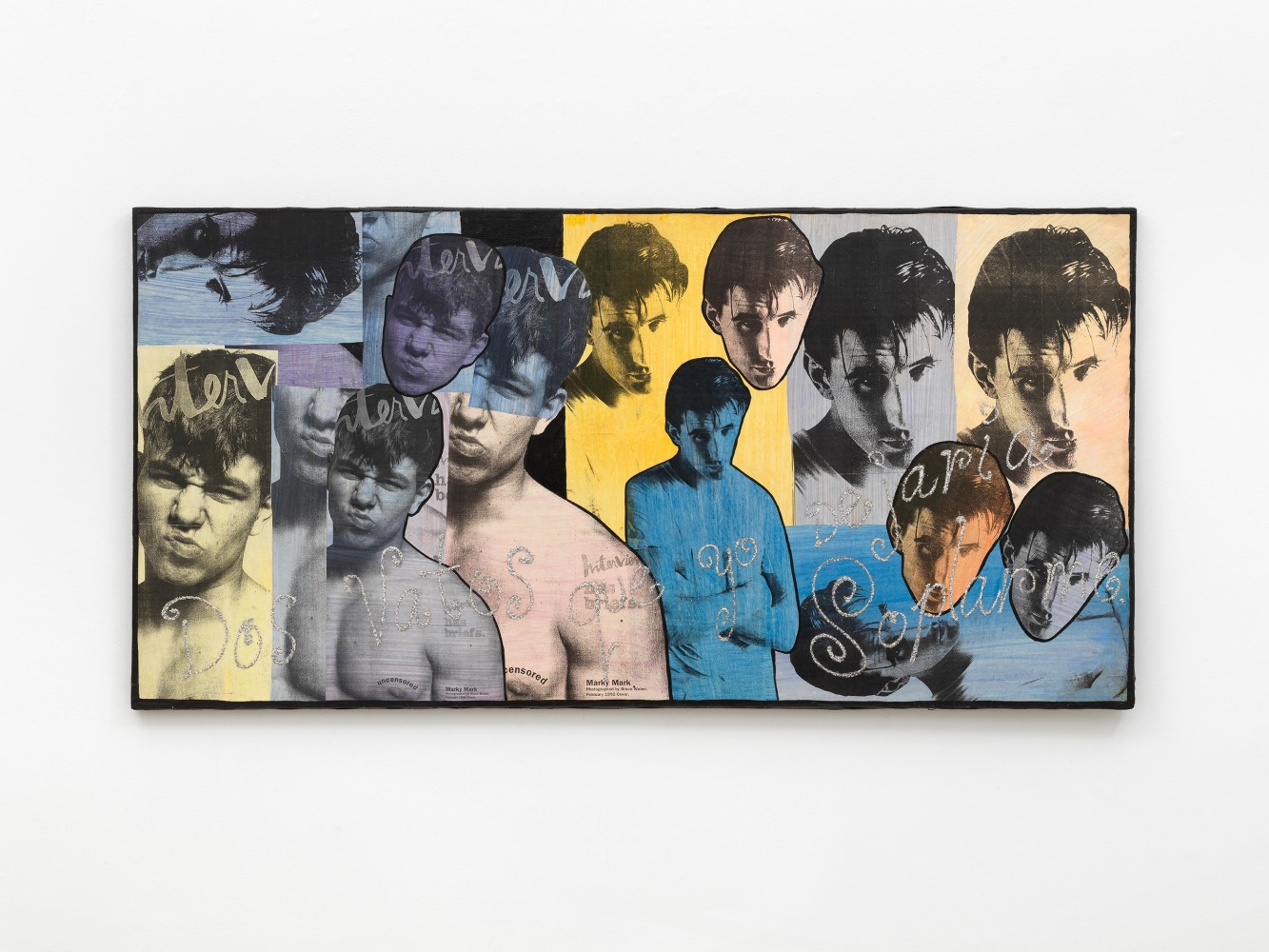
Joey Terrill, Marky and Billy, 1993
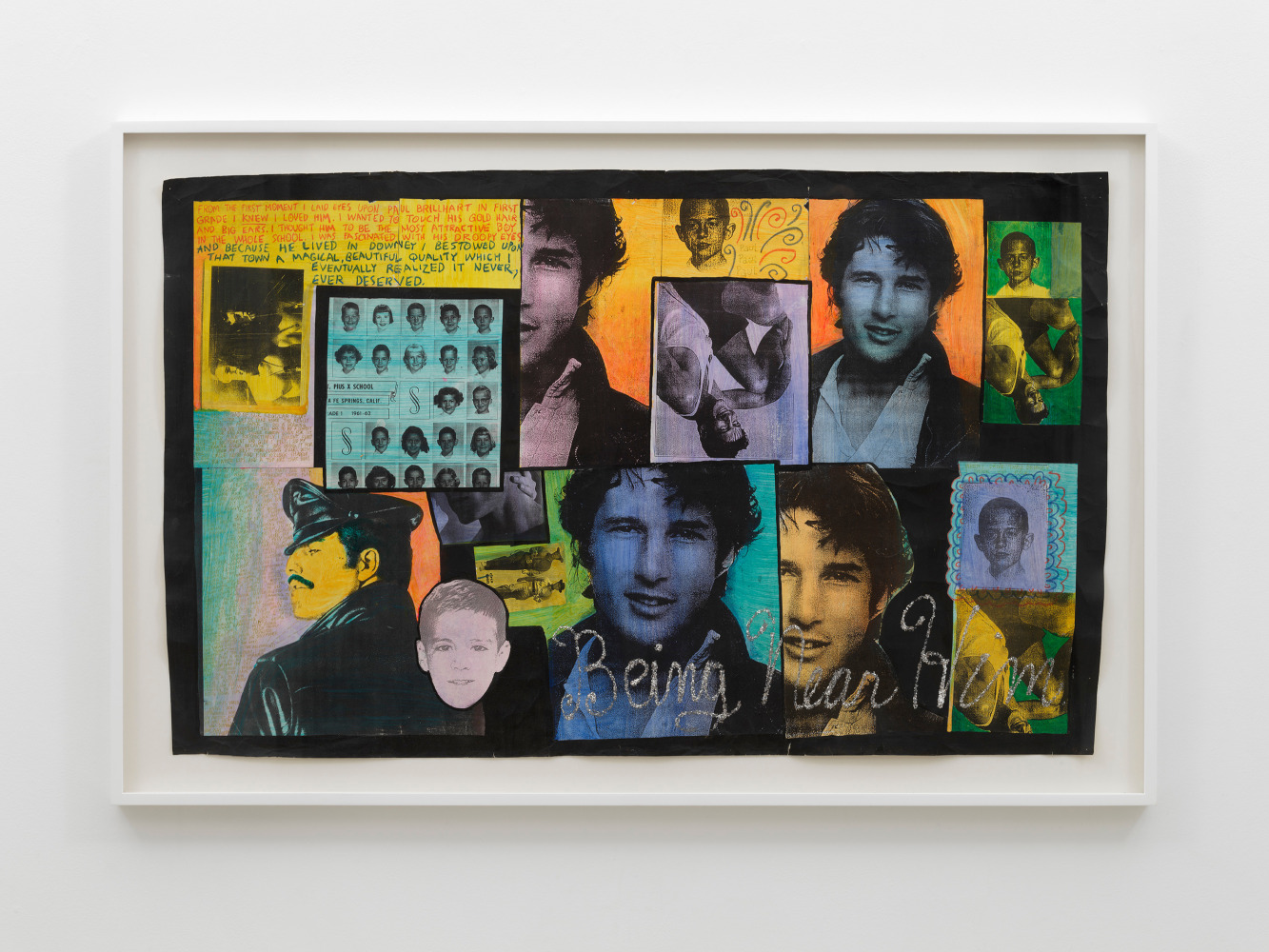
Joey Terrill, Being Near Him, 1993
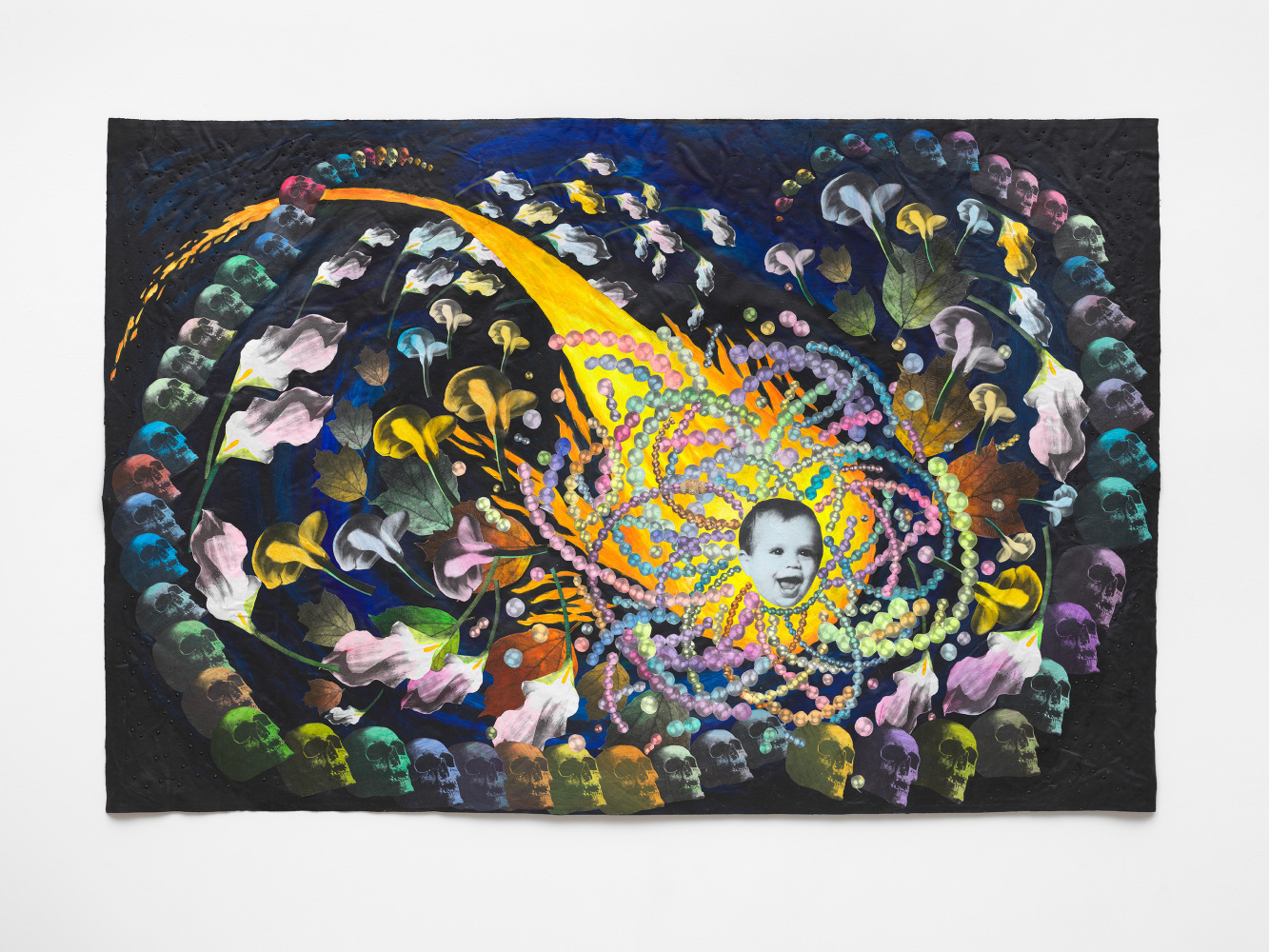
Joey Terrill, Here I am/Estoy Aquí, 2022
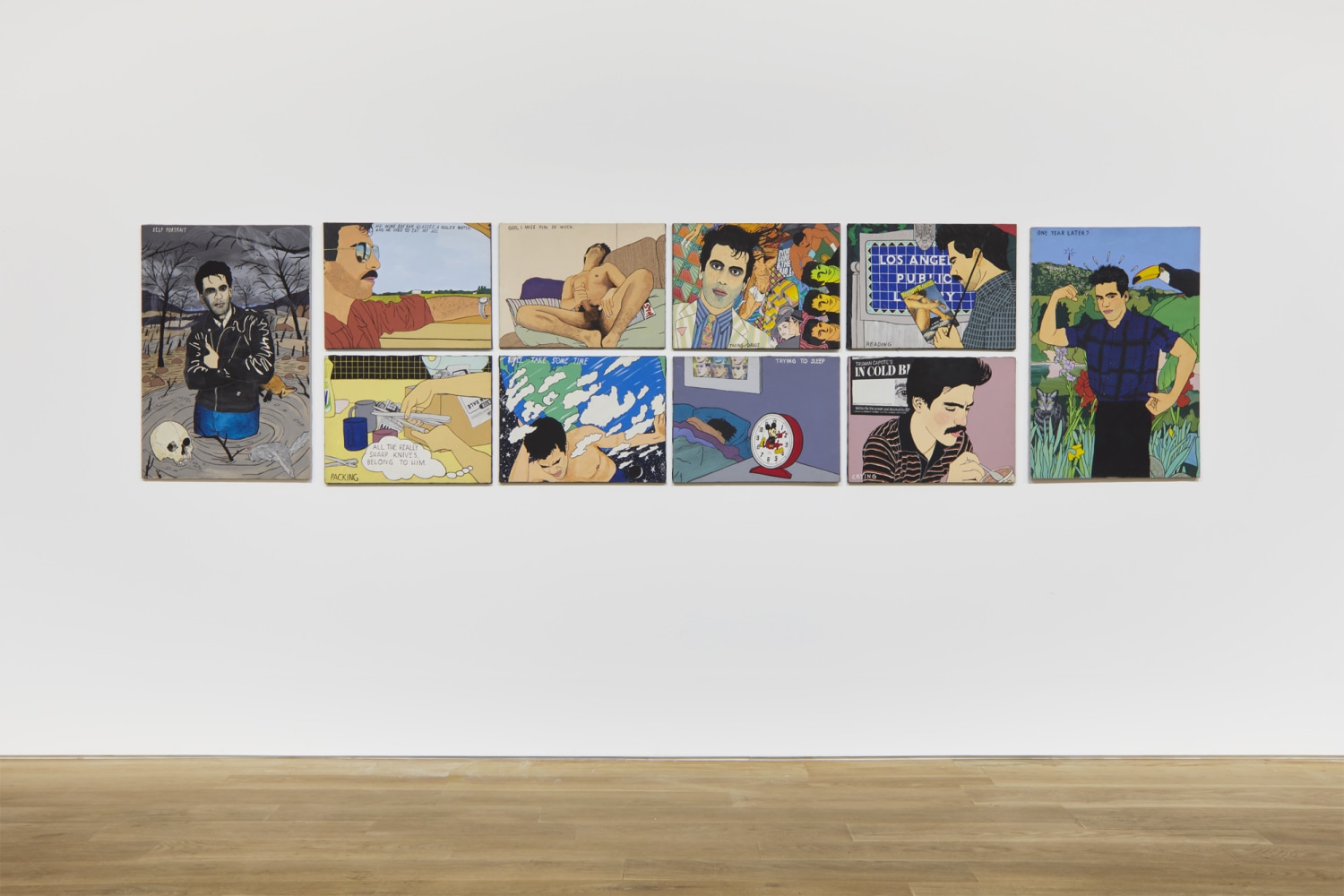
Joey Terrill, Breaking Up / Breaking Down, 1984–1985
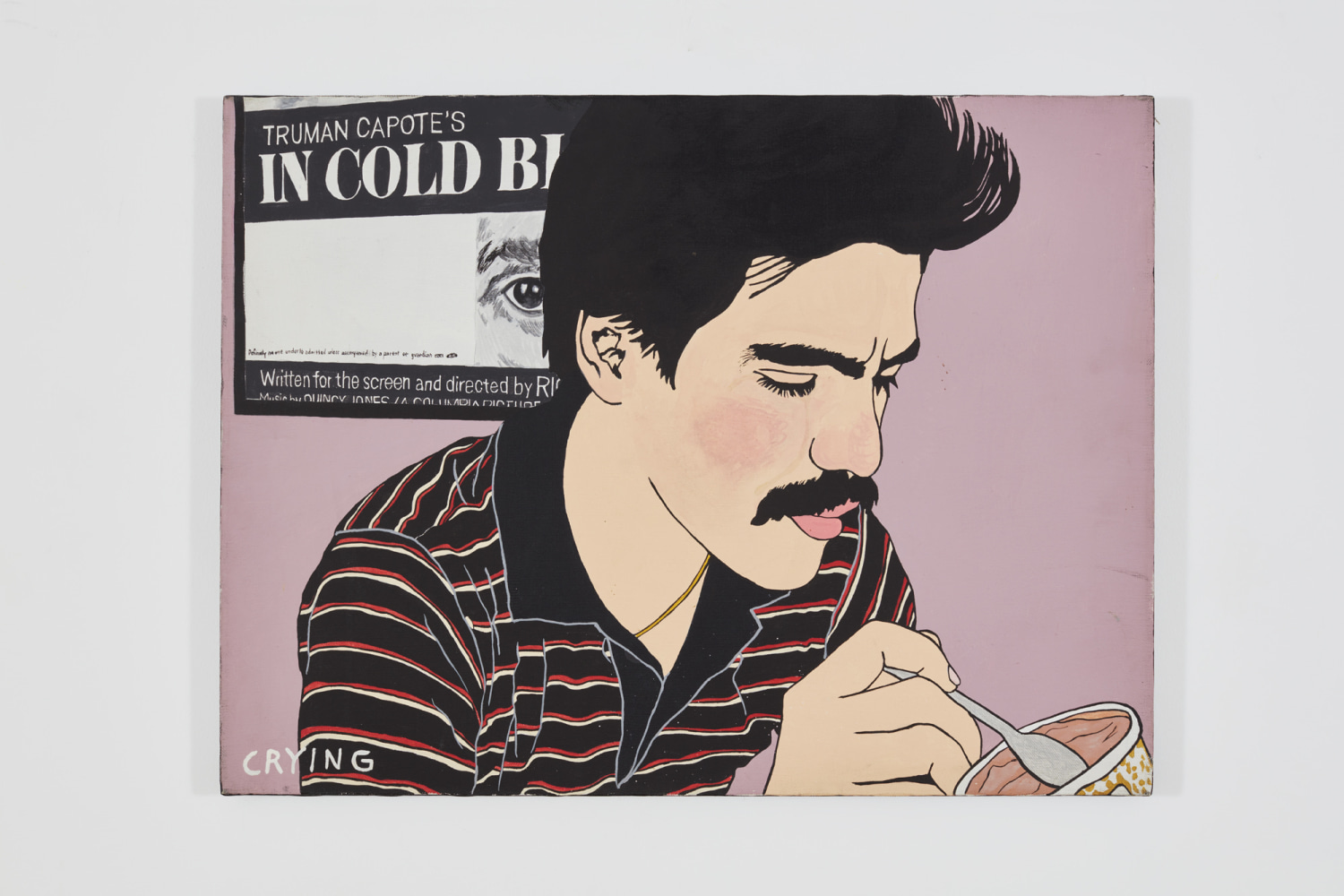
Joey Terrill, Breaking Up / Breaking Down, 1984–1985 detail
Panel 9: Crying
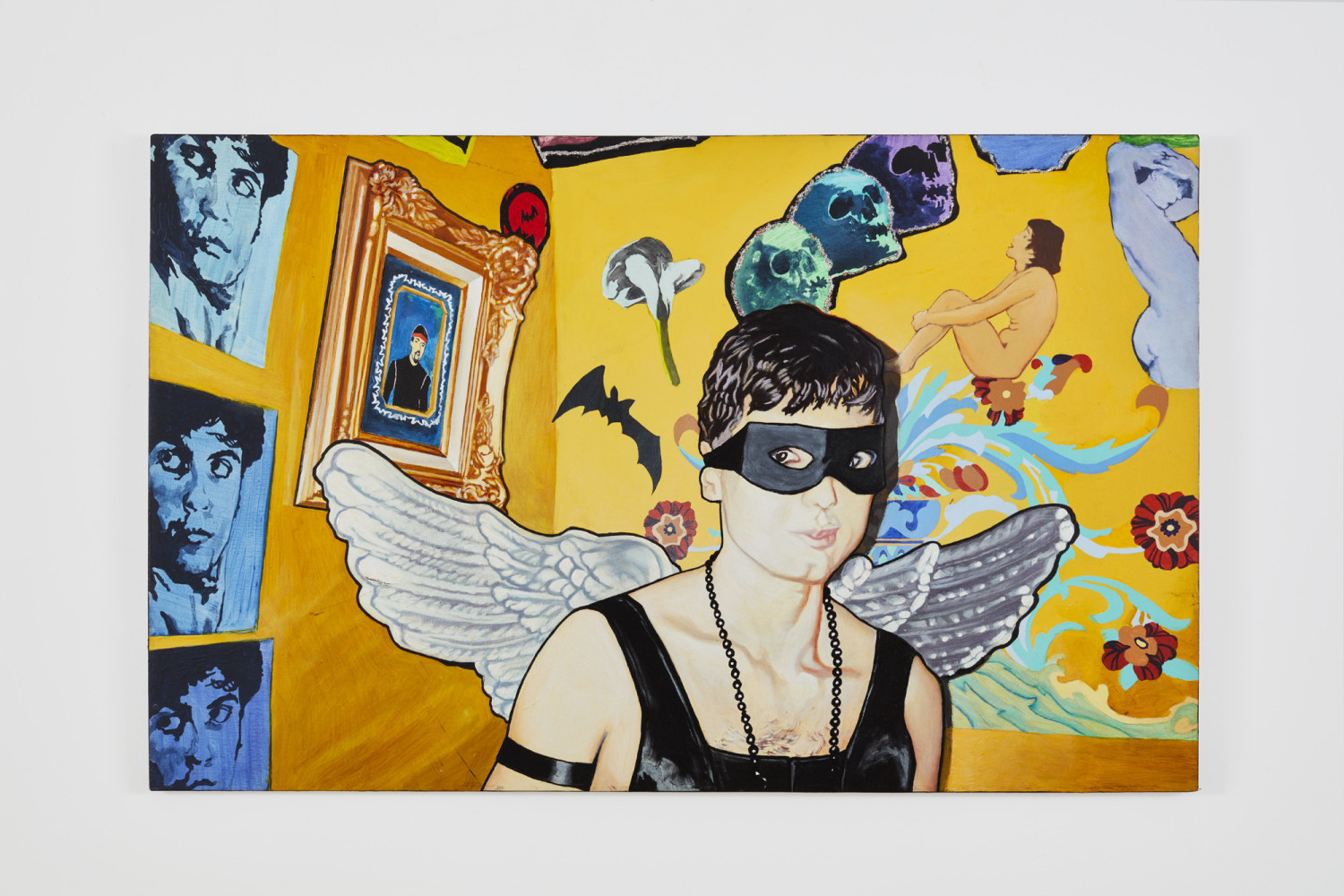
Joey Terrill, Oscar/Ernesto, 1992–1993
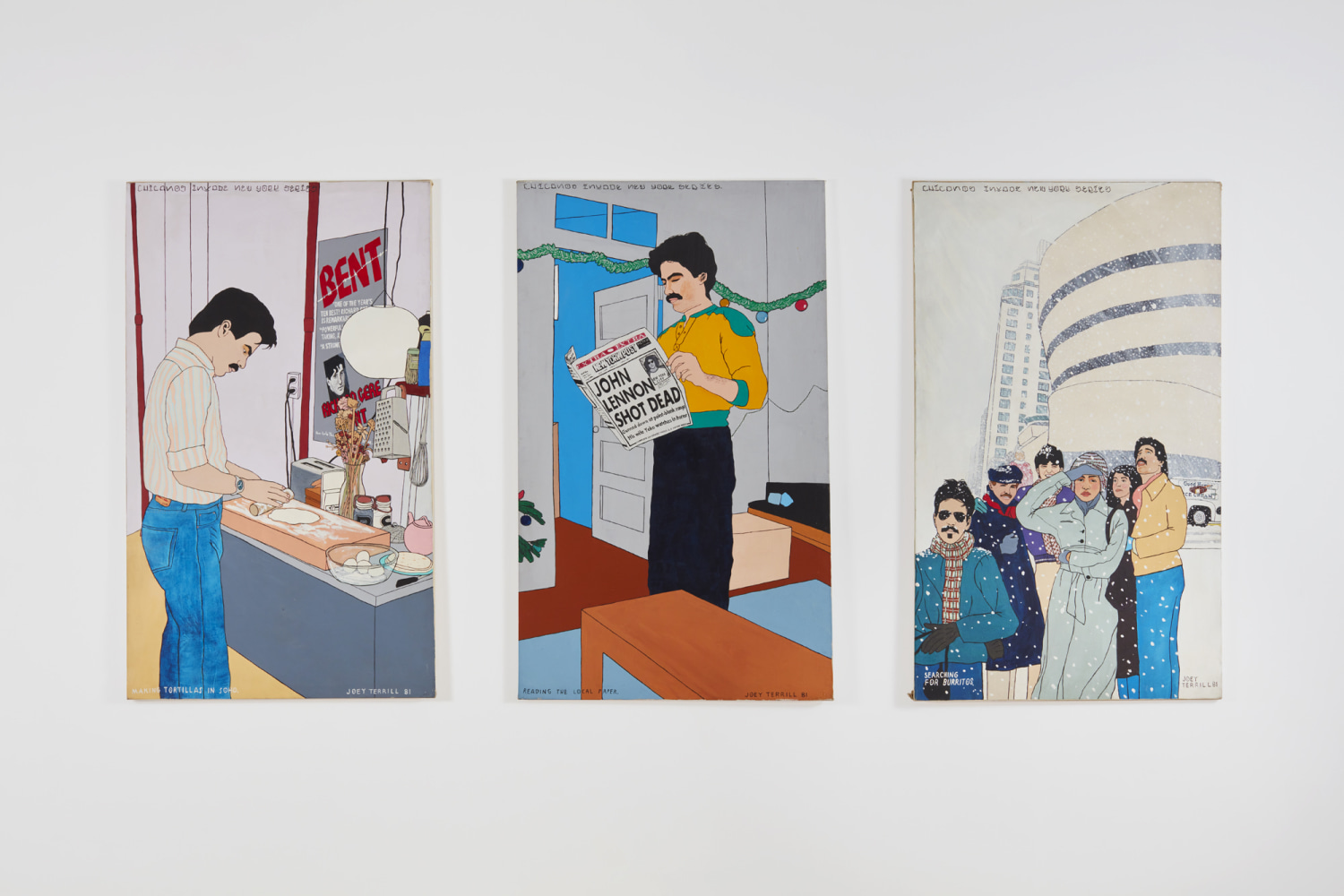
Joey Terrill, Chicanos Invade New York (triptych), 1981
(left to right)
Making Tortillas in Soho
Reading the Local Paper
Searching for Burritos
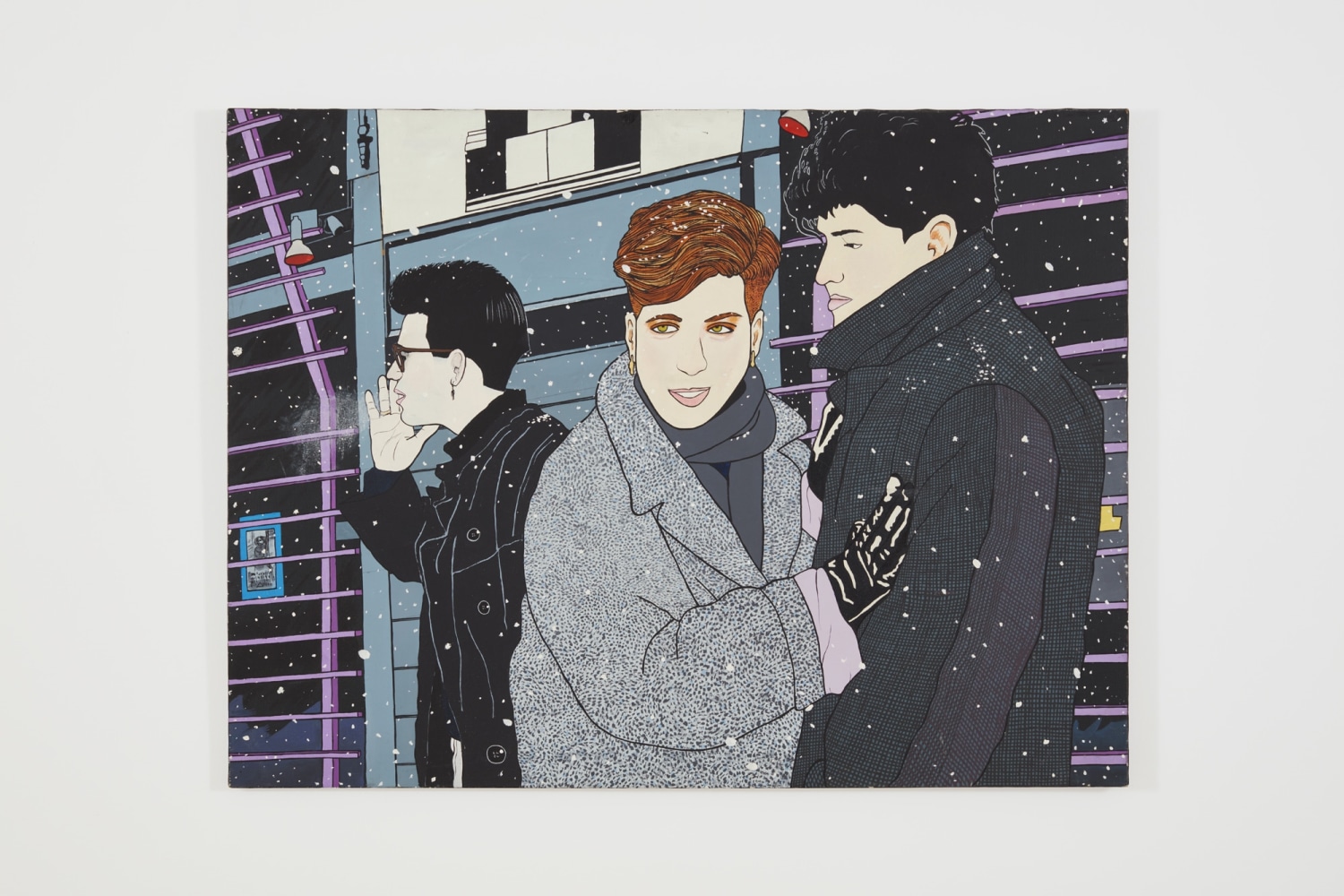
Joey Terrill, Vickie And Sue Say What About Bamboo House?, 1985–1988
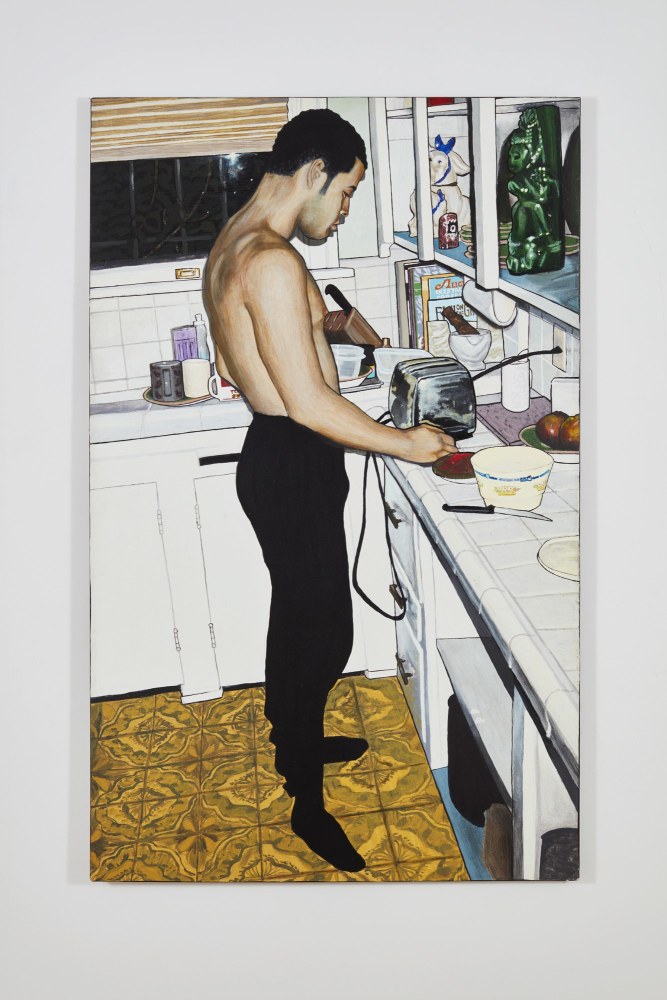
Joey Terrill, Orlando Waiting for Toast, 1999–2000










